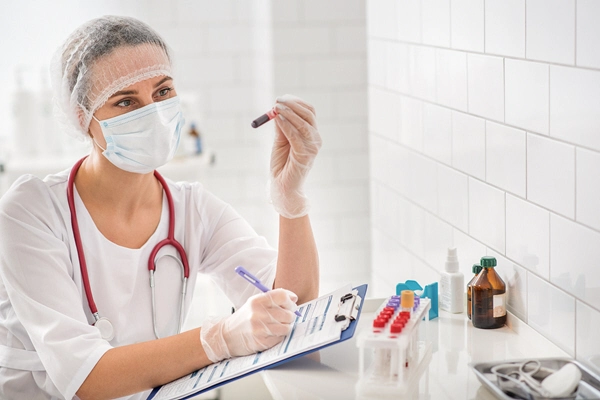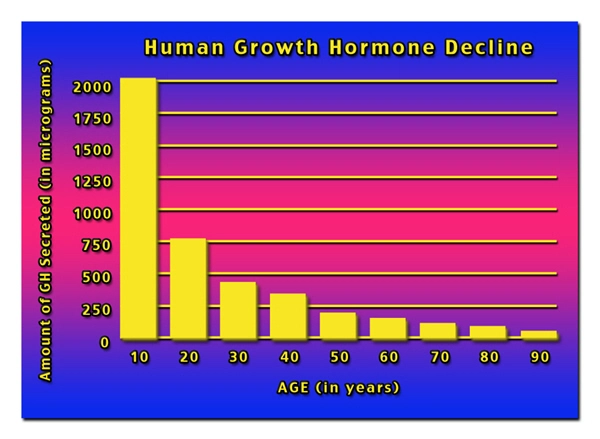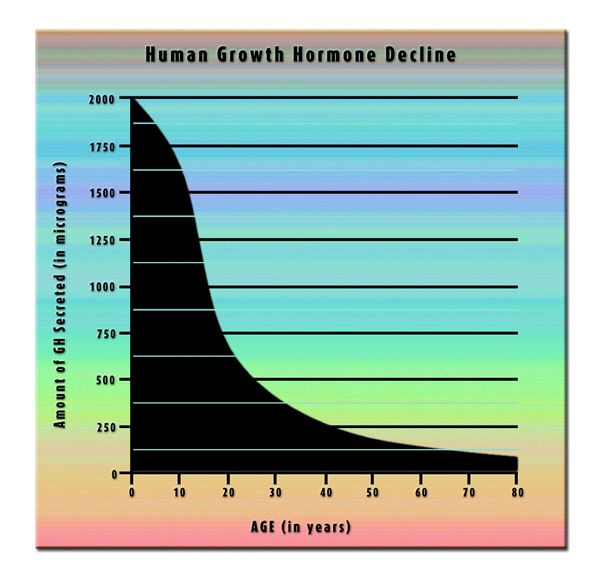Introduction to Secondary Hypogonadism
Secondary hypogonadism, a condition characterized by the inadequate production of testosterone due to dysfunctions in the hypothalamus or pituitary gland, is increasingly prevalent among American men. This condition can lead to a myriad of symptoms including decreased libido, fatigue, and muscle loss. While medical interventions are often necessary, the role of diet in managing and potentially mitigating the effects of secondary hypogonadism cannot be overstated.
The Importance of a Balanced Diet
A balanced diet is crucial for overall health and can play a significant role in managing secondary hypogonadism. Nutrients such as zinc, vitamin D, and omega-3 fatty acids have been shown to support testosterone production and overall hormonal balance. American men should focus on incorporating a variety of nutrient-dense foods into their diets to support their hormonal health.
Key Nutrients and Their Sources
Zinc, an essential mineral, is vital for testosterone production. Foods rich in zinc include oysters, beef, and pumpkin seeds. Vitamin D, another critical nutrient, can be obtained from sunlight exposure and dietary sources such as fatty fish and fortified dairy products. Omega-3 fatty acids, found in fish like salmon and mackerel, have anti-inflammatory properties and may support testosterone levels.
The Role of Macronutrients
Macronutrients such as proteins, fats, and carbohydrates also play a role in managing secondary hypogonadism. Adequate protein intake is essential for muscle maintenance and growth, which can be particularly beneficial for men experiencing muscle loss due to low testosterone levels. Healthy fats, including those from avocados and nuts, are important for hormone production. Carbohydrates, when consumed in moderation, provide the energy needed for physical activity, which can further support hormonal health.
Avoiding Harmful Dietary Practices
Certain dietary practices can exacerbate the symptoms of secondary hypogonadism. High intake of processed foods, sugars, and trans fats can lead to obesity and insulin resistance, both of which are linked to lower testosterone levels. American men should be mindful of their consumption of these harmful substances and strive to maintain a diet that supports overall health and hormonal balance.
The Impact of Weight Management
Obesity is a significant risk factor for secondary hypogonadism. Excess body fat can lead to increased estrogen production, which can further suppress testosterone levels. A diet focused on weight management, rich in whole foods and low in processed items, can help American men maintain a healthy weight and support their hormonal health.
Incorporating Physical Activity
While diet is a crucial component of managing secondary hypogonadism, it should be complemented with regular physical activity. Exercise, particularly resistance training, has been shown to boost testosterone levels and improve overall health. American men should aim to combine a nutritious diet with a consistent exercise regimen to maximize the benefits for their hormonal health.
Consulting Healthcare Professionals
It is important for American men with secondary hypogonadism to consult with healthcare professionals before making significant changes to their diet or lifestyle. A healthcare provider can offer personalized advice and monitor the effectiveness of dietary interventions in managing the condition.
Conclusion: A Holistic Approach to Managing Secondary Hypogonadism
In conclusion, diet plays a pivotal role in managing secondary hypogonadism among American men. By focusing on a balanced diet rich in essential nutrients, avoiding harmful dietary practices, and maintaining a healthy weight, men can support their hormonal health and mitigate the symptoms of this condition. Combined with regular physical activity and professional medical guidance, a holistic approach can significantly improve the quality of life for those affected by secondary hypogonadism.

- Secondary Hypogonadism's Impact on Cardiovascular Health in American Men [Last Updated On: March 14th, 2025] [Originally Added On: March 14th, 2025]
- Stress and Secondary Hypogonadism: Impacts and Management Strategies for American Men [Last Updated On: March 17th, 2025] [Originally Added On: March 17th, 2025]
- Genetic Factors in Secondary Hypogonadism: KAL1, FGFR1, GNRHR Mutations and Treatment Implications [Last Updated On: March 17th, 2025] [Originally Added On: March 17th, 2025]
- Secondary Hypogonadism's Impact on Cognitive Function in American Men [Last Updated On: March 18th, 2025] [Originally Added On: March 18th, 2025]
- Secondary Hypogonadism in American Men: Building Essential Support Systems [Last Updated On: March 18th, 2025] [Originally Added On: March 18th, 2025]
- Secondary Hypogonadism's Psychological Impact on American Men: A Holistic Treatment Approach [Last Updated On: March 20th, 2025] [Originally Added On: March 20th, 2025]
- Secondary Hypogonadism in American Men: Causes, Diagnosis, and Management Strategies [Last Updated On: March 20th, 2025] [Originally Added On: March 20th, 2025]
- Secondary Hypogonadism: Impact on Energy and Treatment Strategies in American Males [Last Updated On: March 20th, 2025] [Originally Added On: March 20th, 2025]
- Exercise Strategies for Managing Secondary Hypogonadism in American Males [Last Updated On: March 21st, 2025] [Originally Added On: March 21st, 2025]
- Secondary Hypogonadism's Impact on Skin Health in American Men: Causes and Management [Last Updated On: March 21st, 2025] [Originally Added On: March 21st, 2025]
- Secondary Hypogonadism in American Males: Understanding and Managing Hair Loss [Last Updated On: March 21st, 2025] [Originally Added On: March 21st, 2025]
- Secondary Hypogonadism and Sleep: Impacts and Improvement Strategies for American Men [Last Updated On: March 21st, 2025] [Originally Added On: March 21st, 2025]
- Secondary Hypogonadism: Symptoms, Causes, and Treatment in American Males [Last Updated On: March 22nd, 2025] [Originally Added On: March 22nd, 2025]
- Secondary Hypogonadism: Impacts on Body Composition in American Men [Last Updated On: March 22nd, 2025] [Originally Added On: March 22nd, 2025]
- Secondary Hypogonadism's Impact on Immune System in American Men: A Comprehensive Overview [Last Updated On: March 22nd, 2025] [Originally Added On: March 22nd, 2025]
- Exploring Alternative Therapies for Secondary Hypogonadism in American Men [Last Updated On: March 22nd, 2025] [Originally Added On: March 22nd, 2025]
- Secondary Hypogonadism: Causes, Symptoms, and Treatment for American Males [Last Updated On: March 22nd, 2025] [Originally Added On: March 22nd, 2025]
- Secondary Hypogonadism: Causes, Symptoms, and Treatment for American Men [Last Updated On: March 22nd, 2025] [Originally Added On: March 22nd, 2025]
- Secondary Hypogonadism: Impacts on Prostate Health and Testosterone Therapy Considerations [Last Updated On: March 23rd, 2025] [Originally Added On: March 23rd, 2025]
- Secondary Hypogonadism in American Males: Links to Anemia and Treatment Strategies [Last Updated On: March 23rd, 2025] [Originally Added On: March 23rd, 2025]
- Secondary Hypogonadism: Long-Term Effects and Management in American Men [Last Updated On: March 23rd, 2025] [Originally Added On: March 23rd, 2025]
- Secondary Hypogonadism: Understanding Its Impact on Male Libido and Treatment Options [Last Updated On: March 24th, 2025] [Originally Added On: March 24th, 2025]
- Secondary Hypogonadism and Autoimmune Diseases: Implications for American Men's Health [Last Updated On: March 24th, 2025] [Originally Added On: March 24th, 2025]
- Secondary Hypogonadism's Impact on Mood Disorders in American Men: Mechanisms and Therapies [Last Updated On: March 24th, 2025] [Originally Added On: March 24th, 2025]
- Secondary Hypogonadism: Causes, Diagnosis, and Multifaceted Treatment Approaches [Last Updated On: March 24th, 2025] [Originally Added On: March 24th, 2025]
- Secondary Hypogonadism: Impacts on American Men's Social Life and Well-being [Last Updated On: March 24th, 2025] [Originally Added On: March 24th, 2025]
- Secondary Hypogonadism's Impact on Bone Density in American Men: Risks and Management [Last Updated On: March 24th, 2025] [Originally Added On: March 24th, 2025]
- Secondary Hypogonadism and Diabetes: Risks and Management for American Males [Last Updated On: March 25th, 2025] [Originally Added On: March 25th, 2025]
- Secondary Hypogonadism: Integrating Medical and Psychological Care for American Males [Last Updated On: March 25th, 2025] [Originally Added On: March 25th, 2025]
- Exercise Boosts Testosterone: Managing Secondary Hypogonadism in American Men [Last Updated On: March 25th, 2025] [Originally Added On: March 25th, 2025]
- Sleep Disorders Linked to Secondary Hypogonadism in American Men: Mechanisms and Implications [Last Updated On: March 25th, 2025] [Originally Added On: March 25th, 2025]
- Understanding Secondary Hypogonadism: Symptoms, Diagnosis, and Management in American Males [Last Updated On: March 25th, 2025] [Originally Added On: March 25th, 2025]
- Environmental Factors and Secondary Hypogonadism in American Men: Causes and Prevention [Last Updated On: March 25th, 2025] [Originally Added On: March 25th, 2025]
- Secondary Hypogonadism: Impact on Fat Distribution and Health in American Men [Last Updated On: March 26th, 2025] [Originally Added On: March 26th, 2025]
- Secondary Hypogonadism's Impact on Kidney Function in American Males: Diagnosis and Management [Last Updated On: March 26th, 2025] [Originally Added On: March 26th, 2025]
- Managing Secondary Hypogonadism and Fatigue in American Males: Diagnosis, Treatment, and Support [Last Updated On: March 26th, 2025] [Originally Added On: March 26th, 2025]
- Lifestyle Factors and Management of Secondary Hypogonadism in American Males [Last Updated On: March 26th, 2025] [Originally Added On: March 26th, 2025]
- Thyroid Function's Role in Secondary Hypogonadism Among American Males [Last Updated On: March 26th, 2025] [Originally Added On: March 26th, 2025]
- Understanding Secondary Hypogonadism: Causes, Symptoms, and Treatment Options for American Males [Last Updated On: March 26th, 2025] [Originally Added On: March 26th, 2025]
- Secondary Hypogonadism: Impacts and Management Strategies for American Men [Last Updated On: March 26th, 2025] [Originally Added On: March 26th, 2025]
- Secondary Hypogonadism's Impact on Muscle Strength in American Men: Diagnosis and Treatment [Last Updated On: March 26th, 2025] [Originally Added On: March 26th, 2025]
- Secondary Hypogonadism: Causes, Symptoms, and Treatment Options for American Males [Last Updated On: March 26th, 2025] [Originally Added On: March 26th, 2025]
- Secondary Hypogonadism's Impact on American Men's Physical Performance and Health [Last Updated On: March 26th, 2025] [Originally Added On: March 26th, 2025]
- Secondary Hypogonadism's Emotional Impact and Holistic Management in American Men [Last Updated On: March 27th, 2025] [Originally Added On: March 27th, 2025]
- Secondary Hypogonadism and Heart Disease: Risks, Symptoms, and Management for American Males [Last Updated On: March 27th, 2025] [Originally Added On: March 27th, 2025]
- Secondary Hypogonadism and Liver Health: Risks and Management for American Males [Last Updated On: March 27th, 2025] [Originally Added On: March 27th, 2025]
- Secondary Hypogonadism in American Males: Causes, Diagnosis, and Management Strategies [Last Updated On: March 27th, 2025] [Originally Added On: March 27th, 2025]
- Nutrition's Role in Managing Secondary Hypogonadism in American Males [Last Updated On: March 27th, 2025] [Originally Added On: March 27th, 2025]
- Managing Secondary Hypogonadism in American Males: Stress, Strategies, and Support [Last Updated On: March 29th, 2025] [Originally Added On: March 29th, 2025]
- Secondary Hypogonadism's Psychological Impact on Men: A Comprehensive Care Approach [Last Updated On: March 29th, 2025] [Originally Added On: March 29th, 2025]
- Secondary Hypogonadism's Impact on Cognitive Function in American Men: A Comprehensive Review [Last Updated On: March 29th, 2025] [Originally Added On: March 29th, 2025]
- Secondary Hypogonadism's Impact on Mood in American Men: Mechanisms and Interventions [Last Updated On: March 30th, 2025] [Originally Added On: March 30th, 2025]
- Secondary Hypogonadism: Causes, Symptoms, and Hormonal Therapy Management [Last Updated On: March 30th, 2025] [Originally Added On: March 30th, 2025]
- Secondary Hypogonadism: Impact on Energy and Vitality in American Men [Last Updated On: April 1st, 2025] [Originally Added On: April 1st, 2025]
- Secondary Hypogonadism in American Males: Impact on Weight and Management Strategies [Last Updated On: April 5th, 2025] [Originally Added On: April 5th, 2025]
- Sleep's Critical Role in Managing Secondary Hypogonadism in American Males [Last Updated On: April 6th, 2025] [Originally Added On: April 6th, 2025]
- Managing Secondary Hypogonadism: Symptoms, Causes, and Treatment for American Males [Last Updated On: April 7th, 2025] [Originally Added On: April 7th, 2025]
- Managing Secondary Hypogonadism: Holistic Approaches and Increased Awareness in American Males [Last Updated On: April 8th, 2025] [Originally Added On: April 8th, 2025]
- Secondary Hypogonadism's Impact on Emotional Resilience in American Men [Last Updated On: April 8th, 2025] [Originally Added On: April 8th, 2025]
- Secondary Hypogonadism: Impact on American Men's Relationships and Coping Strategies [Last Updated On: April 9th, 2025] [Originally Added On: April 9th, 2025]
- Secondary Hypogonadism's Impact on Mental Clarity in American Men: Insights and Treatment [Last Updated On: April 10th, 2025] [Originally Added On: April 10th, 2025]
- Managing Secondary Hypogonadism in American Men: Diagnosis, Treatment, and Lifestyle Strategies [Last Updated On: April 10th, 2025] [Originally Added On: April 10th, 2025]
- Understanding Secondary Hypogonadism: Symptoms, Causes, and Management in American Males [Last Updated On: April 11th, 2025] [Originally Added On: April 11th, 2025]
- Community Support Enhances Life Quality for Men with Secondary Hypogonadism [Last Updated On: April 11th, 2025] [Originally Added On: April 11th, 2025]
- Secondary Hypogonadism: Impacts on Daily Life and Treatment Options for American Men [Last Updated On: April 13th, 2025] [Originally Added On: April 13th, 2025]
- Secondary Hypogonadism in American Males: Impacts on Mental Health and Comprehensive Management [Last Updated On: April 13th, 2025] [Originally Added On: April 13th, 2025]
- Managing Secondary Hypogonadism in American Males: Personalized Approaches and Holistic Care [Last Updated On: April 14th, 2025] [Originally Added On: April 14th, 2025]
- Secondary Hypogonadism: Impacts on Muscle, Bone, Fat, Heart, and Sexual Health in Men [Last Updated On: April 15th, 2025] [Originally Added On: April 15th, 2025]
- Understanding Secondary Hypogonadism: Impacts and Management Strategies for Men's Vitality [Last Updated On: April 15th, 2025] [Originally Added On: April 15th, 2025]
- Secondary Hypogonadism in American Males: Causes, Diagnosis, and Management Strategies [Last Updated On: April 15th, 2025] [Originally Added On: April 15th, 2025]
- Understanding Secondary Hypogonadism: Causes, Symptoms, and Treatment for American Males [Last Updated On: April 15th, 2025] [Originally Added On: April 15th, 2025]
- Understanding Secondary Hypogonadism: Symptoms, Diagnosis, and Management in American Males [Last Updated On: April 16th, 2025] [Originally Added On: April 16th, 2025]
- Secondary Hypogonadism: Understanding Its Emotional Impact on American Men [Last Updated On: April 16th, 2025] [Originally Added On: April 16th, 2025]
- Nutrition's Role in Managing Secondary Hypogonadism: Key Nutrients and Dietary Strategies [Last Updated On: April 17th, 2025] [Originally Added On: April 17th, 2025]
- Secondary Hypogonadism: Symptoms, Diagnosis, and Holistic Management for American Males [Last Updated On: April 19th, 2025] [Originally Added On: April 19th, 2025]
- Secondary Hypogonadism in American Males: Lifestyle Factors and Management Strategies [Last Updated On: April 20th, 2025] [Originally Added On: April 20th, 2025]
- Secondary Hypogonadism: Impact on Self-Esteem and Holistic Management Strategies [Last Updated On: April 20th, 2025] [Originally Added On: April 20th, 2025]
- Lifestyle Factors Impacting Secondary Hypogonadism in American Males: A Multicenter Study [Last Updated On: April 22nd, 2025] [Originally Added On: April 22nd, 2025]
- Genetic and Environmental Factors in Secondary Hypogonadism Among American Males [Last Updated On: April 23rd, 2025] [Originally Added On: April 23rd, 2025]
- Understanding Secondary Hypogonadism: Symptoms, Causes, and Management Strategies [Last Updated On: April 23rd, 2025] [Originally Added On: April 23rd, 2025]



List of USA state clinics - click a flag below for blood testing clinics.
Word Count: 574



















































